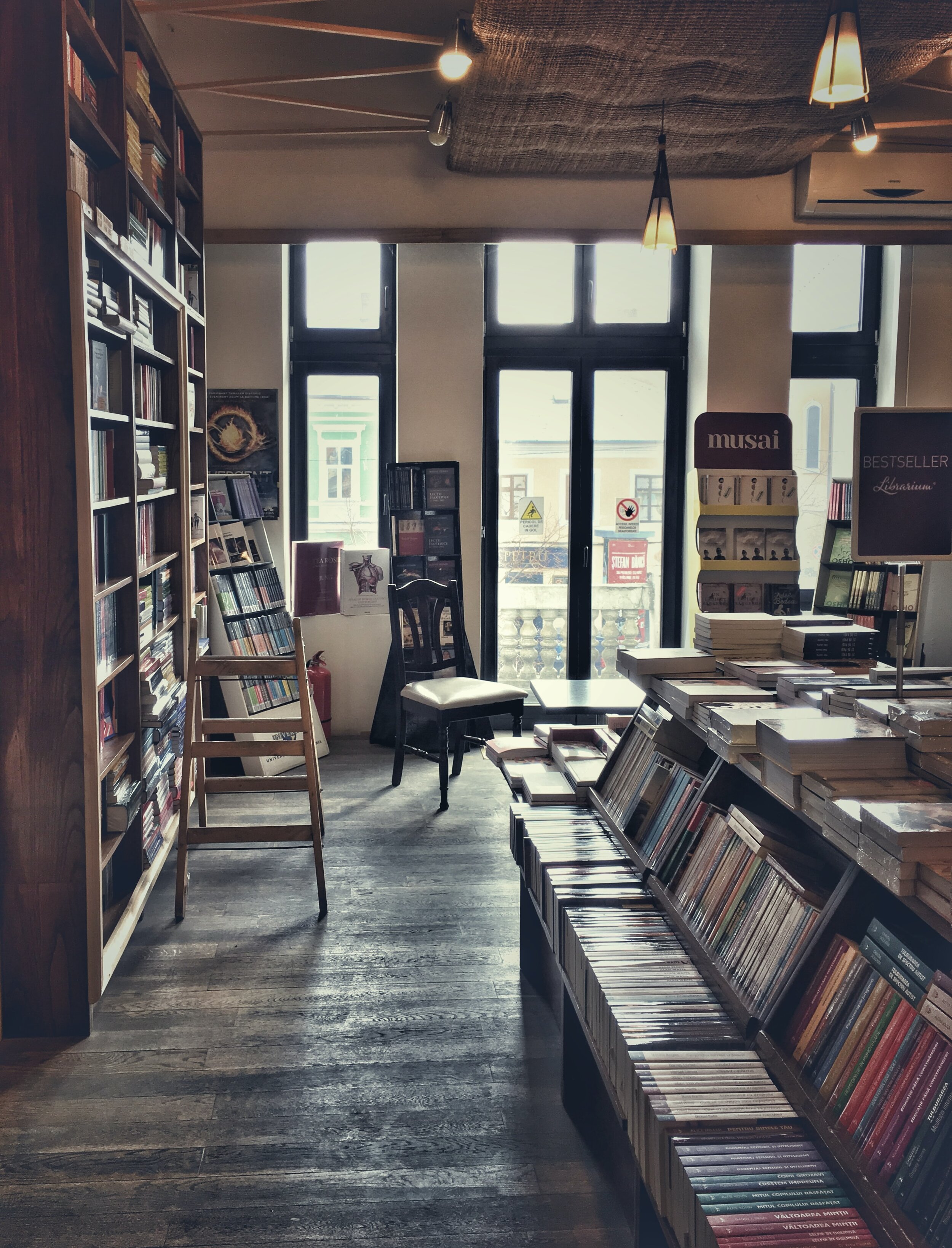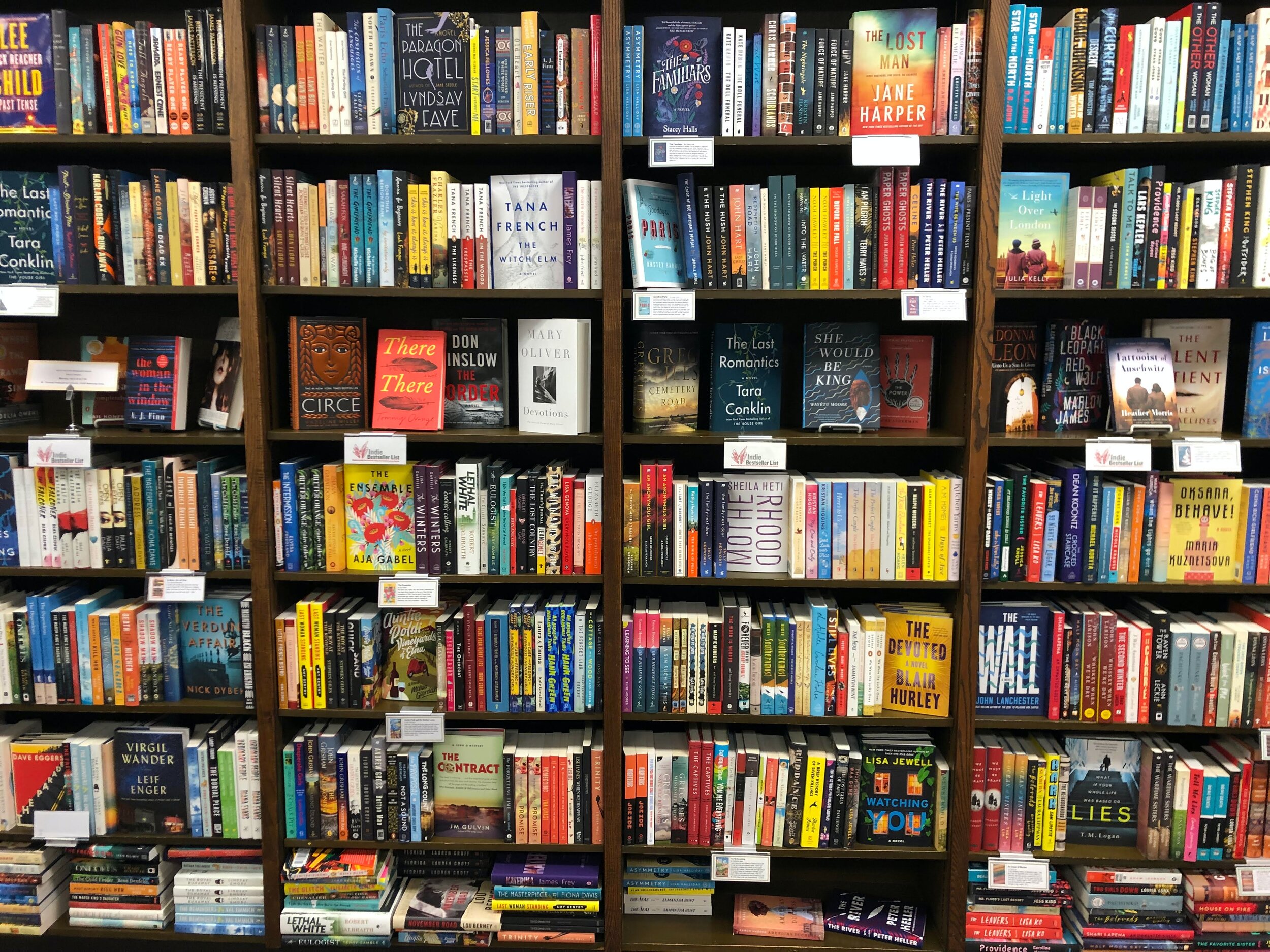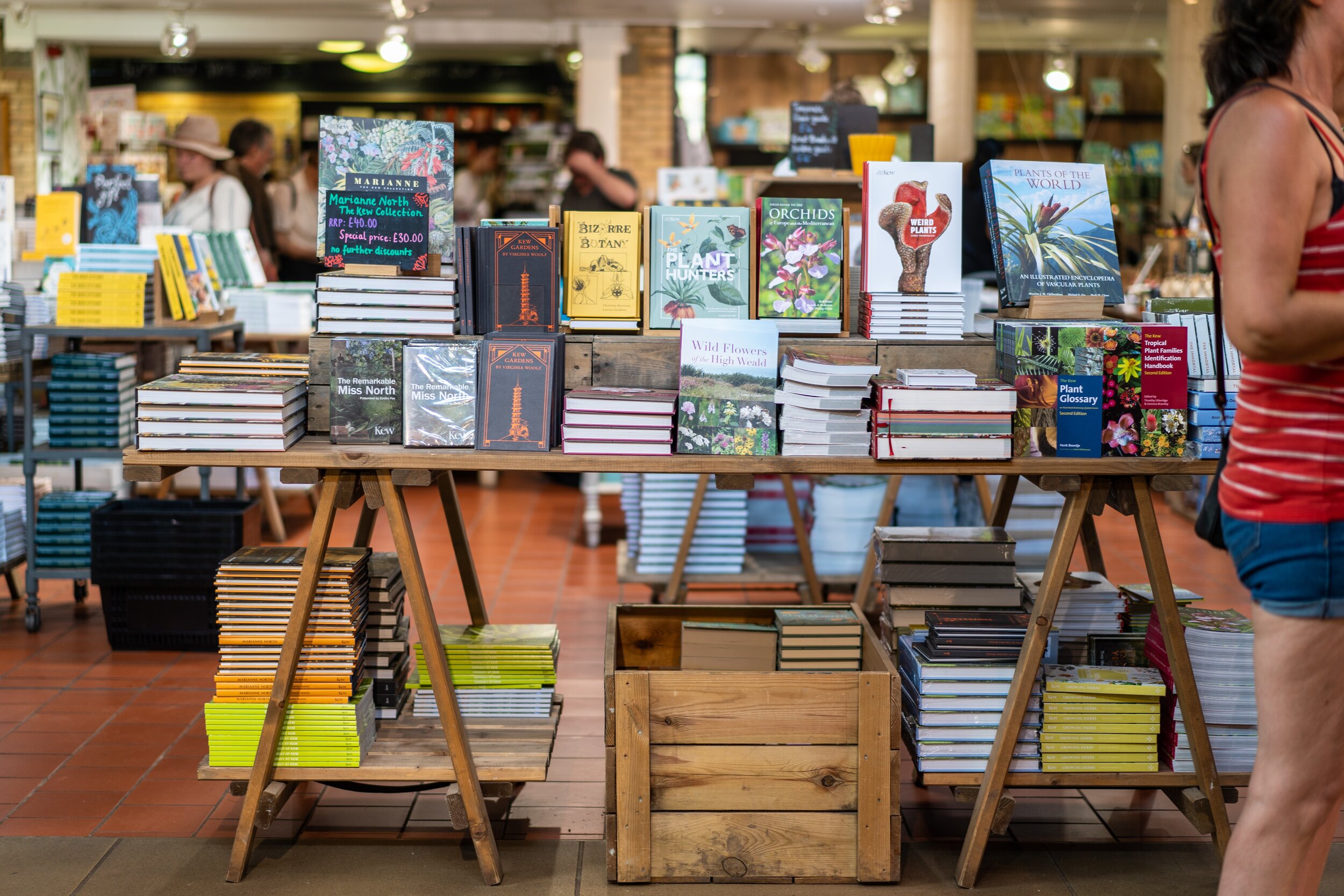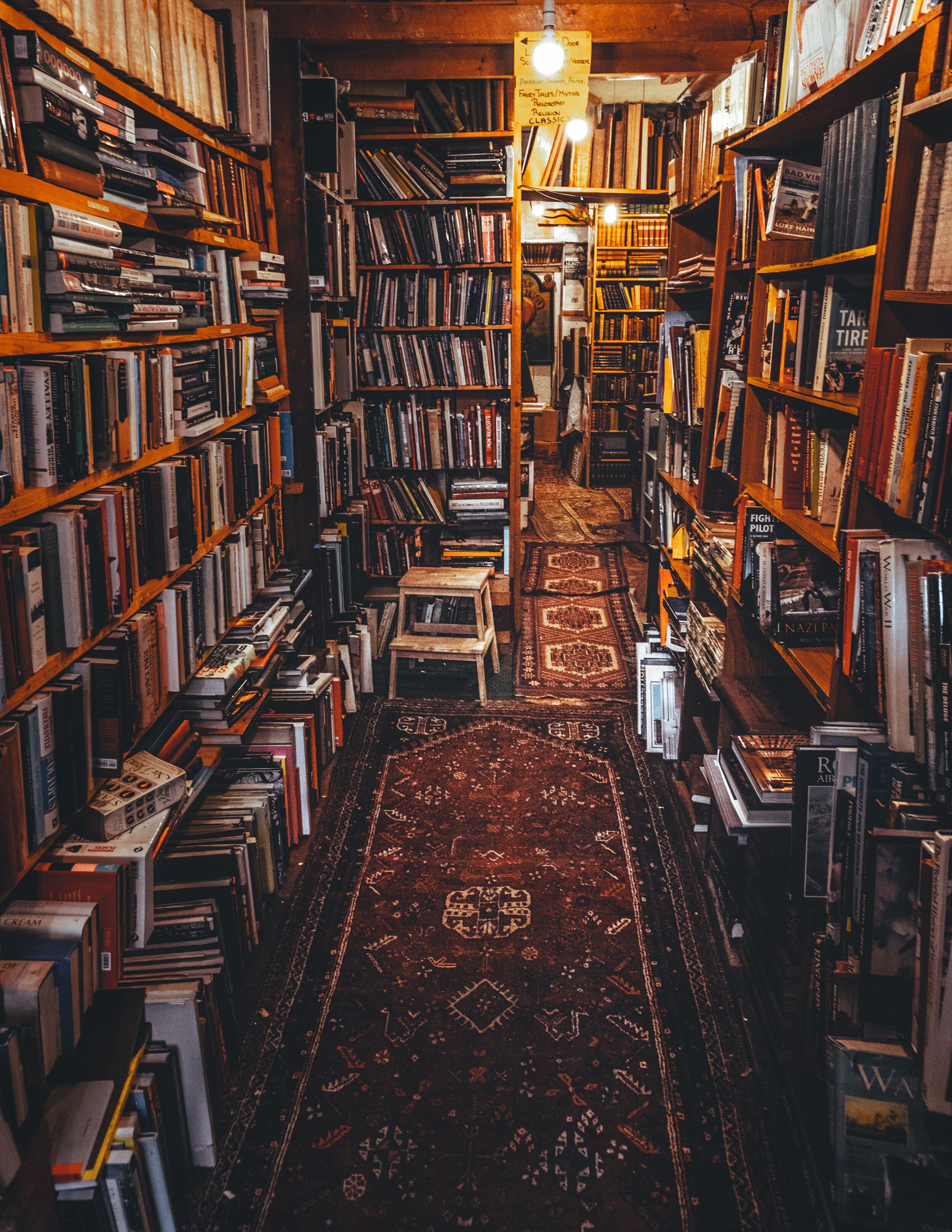One thing you should never buy on Amazon
“Bookstores are more than just repositories of knowledge. They’re living, breathing, evolving representations of our best selves. ”
Illustration by Brian Floca.
I hope you’re reading. A lot.
Right now is as important a time to tackle the stack of hardcovers, power up the Kindle or renew the library membership as ever there was in our entire lifetime.
Right now we need to read to stay informed, to get woke and to stay sane. If you want to feel better, turn off the news, put down the newspaper and pick up a book. Then talk about what you read with your friends and the good feelings keep on spreading.
Words written with extreme care and deep consideration over deliberate periods of time are what’s needed right now. Whether you need to dig into required reading on race, wish to learn more about pandemics, or you’re ready to give your brain a break with some easy summer reads, you just need to know it wasn’t typed into a tiny screen at 3am from the seat of the john. We’ve endured enough knee jerks, hot takes and sound bites for a hundred lifetimes. And let’s face it, on tough pandemic evenings, after long pandemic days, we can’t crawl into bed with a good television, no matter how much we like to snuggle up to Netflix on the laptop. (Good) books are where it’s at.
If you are someone who likes to buy books rather than swap with friends or take them out at the library, listen carefully. I have an important call to action. This is an easy change you can make to wield the power of your wallet and help small businesses stay alive during the shutdown: Do not buy books from Amazon.
Starting today, adventure out of the Amazon search bar into the magical world of independent bookstore websites and IndieBound and independent publishers, all of whom you can buy from directly. Your days of soulless searching and unwanted, ill-considered, algorithmically-generated recommendations are over. Not only are you in for a lot of fun, but you are going to make a difference in a lot of people’s lives.
None of us want to be part of making Jeff Bezos any richer.
While the United Nations and the World Bank estimate that the pandemic will push an additional half a billion people (about 8% of the world’s population) into poverty, Jeff Bezos, Amazon’s founder and the richest man in the world, becomes even richer every day. According to the World Bank, due to COVID-19, poverty rates will go up for the first time since 1998, as the global economy falls into recession and there is a drop in GDP per capita. Meanwhile, Bezos, who is worth over $178 billion, continues on track to become the world’s first trillionaire. In one day alone during the pandemic, his net worth increased by $13 billion.
A child collects bottles in a landfill in Nicaragua. According to the United Nations, hundreds of millions will be forced back into poverty due to the pandemic. Photo Hermes Rivera.
Avoiding making Bezos richer is a good reason not to buy books from Amazon, but it’s hard to deny that Amazon is convenient for procuring other necessities with zero exposure to strangers; things like Better Than Sex mascara and toilet paper and that specific brand of gummy vitamins that your friend’s doctor recommended. Bezos is getting richer for a reason of course, so let’s agree for the purposes of this article that when it comes to Amazon, we’ll start by committing to not buying books. It would be rather epic f we could all agree to never use Amazon again, but that would decrease our success rate at this point. For now let’s focus on BOOKS.
Independent bookstores play a critical role in local communities. They are centers of cultural exchange, intellectual discovery and emotional support. They welcome people in and invite civic discourse. They allow readers of all walks of life to hear directly from authors, publishers and thinkers and share their responses through forums and bookclubs. They employ local citizens. They keep local dollars in the community.
Bookstores, like communities, take pride in their unique identities. Entering a local bookstore can often feel like entering another world with its own oxygen and culture and rules. When I lived in Los Angeles in the early ‘90s I fell hard for Book Soup. Spreading out on the Sunset Strip between Palm Ave and Larabee Street, a stone’s throw from Whiskey A Go Go and The Viper Room, Book Soup seemed almost too cool to be a bookstore. People-watching through the towering stacks of titles (owner Glenn Goldman was famous for over-ordering) put me in the mood to read for hours. If all those fascinating people could find inspiration on the shelves at Book Soup then I knew I was in the right place, too. That’s where I bought American Psycho and Love Medicine and by first Cormac McCarthy. I also bought art and photography and filmmaking books. Walking into Book Soup was like diving under water in a reef, you never knew exactly what you’d find but you knew it would be magical and exciting and entirely immersive.
Book Soup always seemed most alive in the evening hours.
When you patronize local bookstores, you not only boost the local economy, you also support local culture, as bookstores provide a place where people can safely search for what they need, and connect with others who share their interests. Additionally, you support the local economy and job creation. Bookstores are not just dusty rows of books. The hearts of bookstores beat in the people who own them, run them and frequent them.
Changing minds one book at a time - the mission of Frugal Bookstore
Take Frugal Bookstore in Nubian Square in Roxbury, MA. The only black owned bookstore in Boston, Frugal has been a community hub since Leonard and Clarissa Egerton bought it from Bob Romanow in 2008. Frugal’s stated mission, “to change minds one book at a time” confirms their commitment to promoting literacy and encouraging learning for readers of all ages. Author events, student literacy programs and even community jam sessions make Frugal Bookstore more than just a place to buy books. During the racial justice uprising in the months since George Floyd’s death, Frugal has been a source of solidarity, information and comfort.
“Independent bookstores are my first steps in any new city — a quick check of the pulse in any literary community. They are ports in the storm, passageways to magical lands, escape hatches out of bad moods. Even when I don’t think I need a book, because the stack beside my bed is teetering towards the ceiling, I always need a bookstore. And then I usually need a book, too.”
Brookline Booksmith has maintained a full schedule of author events, held virtually. Photo, Boston Globe.
In the U.S., retail is a massive force in the economy, to the tune of $2.6 trillion. So when we purchase from local retailers rather than massive online retailers, we wield a powerful tool for social change.
Independent bookstores often generate less than a million dollars a year–making them very small businesses. “For every $100 you spend in a locally owned bookstore, $73 stays in the local economy, whereas unsurprisingly $100 spent online to an out-of-state retailer returns zero dollars to our communities,” according to Roxanne Coady, owner of R. J. Julia, an independent bookstore in Madison, CT.
Courtney Flynn, of Trident Booksellers in Boston regrets the way Amazon has devalued books to another category of cheap things they sell in order to collect people’s data. “Amazon was positioned to benefit from the pandemic, and they certainly have. We have always been a brick and mortar store, and that's what we had to offer over Amazon. The rise of Amazon is directly responsible for the failure of many small businesses, but the ones that have survived until now have found ways to offer something that Amazon cannot, which is an in-person experience. Unfortunately, we aren't able to do that anymore, so we've had to compete online. The erosion of small business that Amazon has done over the years is devastating, and that will most likely get worse. [But] If you like walking into a space that is open and inviting, that offers expertise advice, that really cares about what they're selling, then you should want to support your local bookstore.”
Thanks to incredibly robust web offerings, you don’t have to be anywhere near a bookstore geographically to take advantage of its unique offerings. Consider the #readingisresistance series from the Unabridged Bookstore in Chicago, including titles such as Between the World and Me by Ta-Nehisi Coates and Hood Feminism by Mikki Kendall; the Collection List from the Frugal Bookstore in Roxbury, MA including titles like Our time is Now by Stacey Abrahms and The Room Where it Happened by John Bolton; or the First Editions Clubs and Book Clubs open to everyone through author Ann Patchett’s Nashville based bookstore Parnassus Books.
At A Room of One’s Own in Madison, WI, patrons get their reading in no matter what they’re up to.
Many indie bookstores also do a lot for marginalized groups in their areas. Trans-owned A Room of One’s Own bookstore which has been a staple in Madison, Wisconsin since 1975, supports not just one, but three prison literacy programs: LGBTQ books to prisoners, Wisconsin books to prisoners, and the Jail library group through the Wisconsin Involvement Network.
As they say at Ink Fish books, in Warren Rhode Island, “a town isn’t a town without a bookstore.” Enjoy your new adventure discovering and ordering from indie bookstores all across the country. You may learn a lot about the communities they are in along the way. Leave a comment about your favorite indie bookstore and the book you want to order next.
And remember, Independent Bookstore Day has been moved to Saturday, August 29, 2020.
Local Independent Bookstores all offering online ordering!
The Blue Bunny in Dedham, owned by Peter Reynolds
Blue Bunny Books, Dedham
Book Ends, Winchester
Brattle Bookshop, Boston
Brookline Booksmith, Brookline
Commonwealth Books, Downtown Crossing, Boston
Concord Bookshop, Concord since 1940
Frugal Bookstore, Nubian Square, Roxbury
Porter Square Books, Porter Square Cambridge
Trident Booksellers and Cafe, Back Bay, Boston
Wellesley Books, Wellesley
Papercuts, in Jamaica Plain offers 30 minute book browse appointments in-store.
Other exciting independent bookstores to checkout online, from the Bronx to LA
Beckham’s Bookshop, Latin Quarter, New Orleans, LA
Book People, “a community bound by books,” Austin TX
Book Soup, Los Angeles, CA
Exile Books, (and their open submission zine pool party) Little Haiti, Miami
Ink Fish Books, Warren, RI
The Lit. Bar, (and their Dear White People book list) Bronx, NY
RJ Julia Independent Booksellers, Madison, CT
Also: Here is a wonderful list of black-owned independent bookstores across the country and Town and Country’s list of Black Owned Bookstores.
For audio book lovers, switch from Amazon owned Audible to Libro.fm. You can support your favorite independent bookstore right in the app.

















